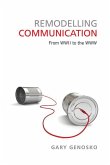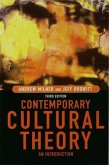Regimes of Description responds to the perception--however imprecise--that forms of knowledge in every sector of contemporary culture are being fundamentally reshaped by the digital revolution: music, speech, engineering diagrams, weather reports, works of visual art, even the words most of us write are now subject, as Lyotard points out in The Inhuman, to a logic of the bit, the elemental unit of electronic information. It is now possible to slice, graft, and splice this knowledge in ways never before imagined using technologies that treat vast bodies of information as a stream of data bits. Programs and technical algorithms specify the criteria for discriminating between the data stream of a Mozart string quartet and the CAT scan of a diseased organ. But are these machine instructions and design parameters descriptions, or merely mechanical filters? And if the latter, what constitutes a description of digitally encoded knowledge? As a group, the essays in this volume pose that question as a first attempt to write the archaeology of the nature and history of description in the digital age.
Hinweis: Dieser Artikel kann nur an eine deutsche Lieferadresse ausgeliefert werden.
Hinweis: Dieser Artikel kann nur an eine deutsche Lieferadresse ausgeliefert werden.








